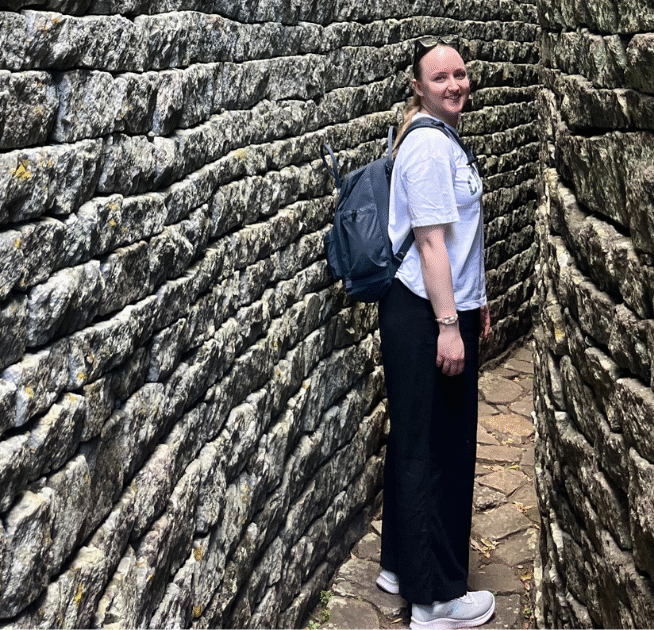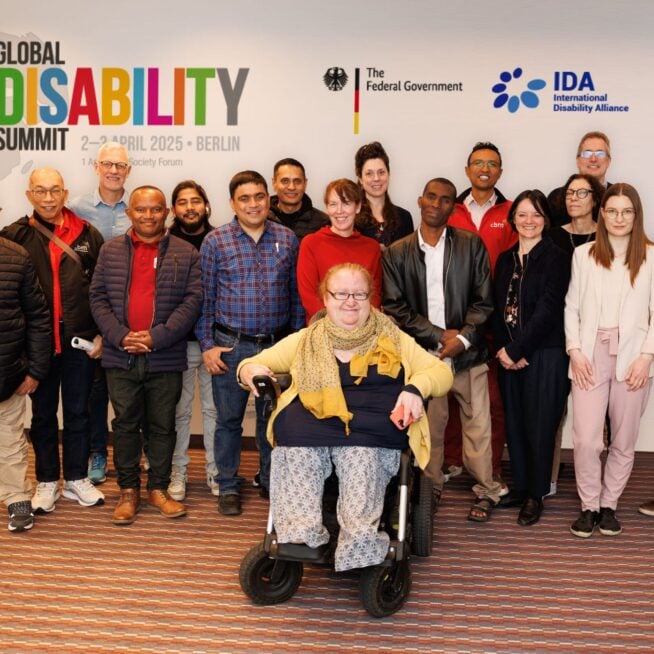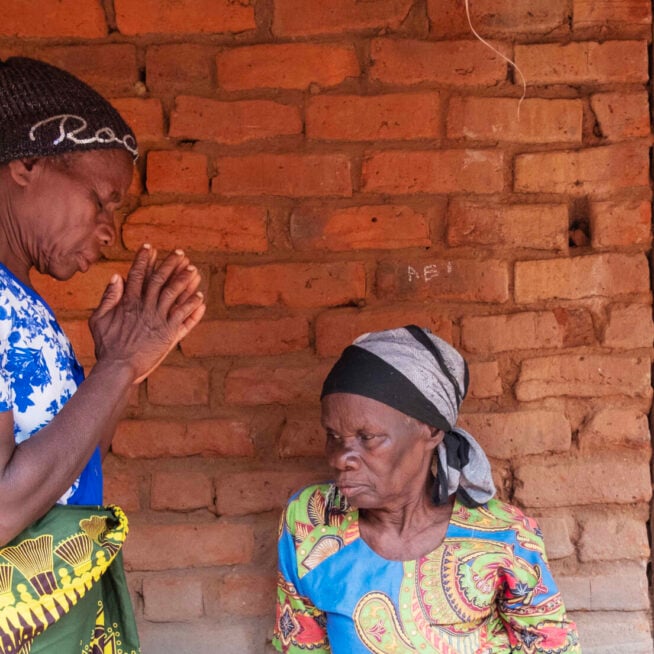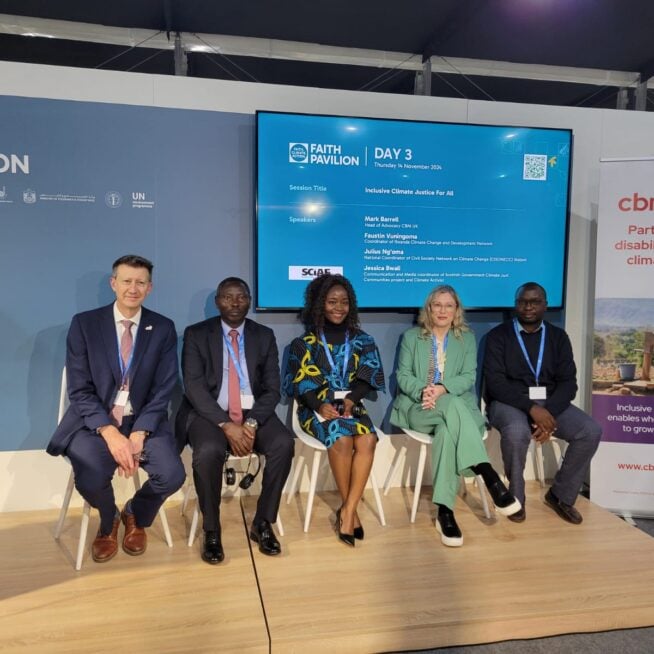Want to transform lives with us? Stay in touch and hear about our news, activities and appeals by email!
Inclusion through partnership – introducing CBM Global Disability Inclusion Director, Dr Mary Keogh
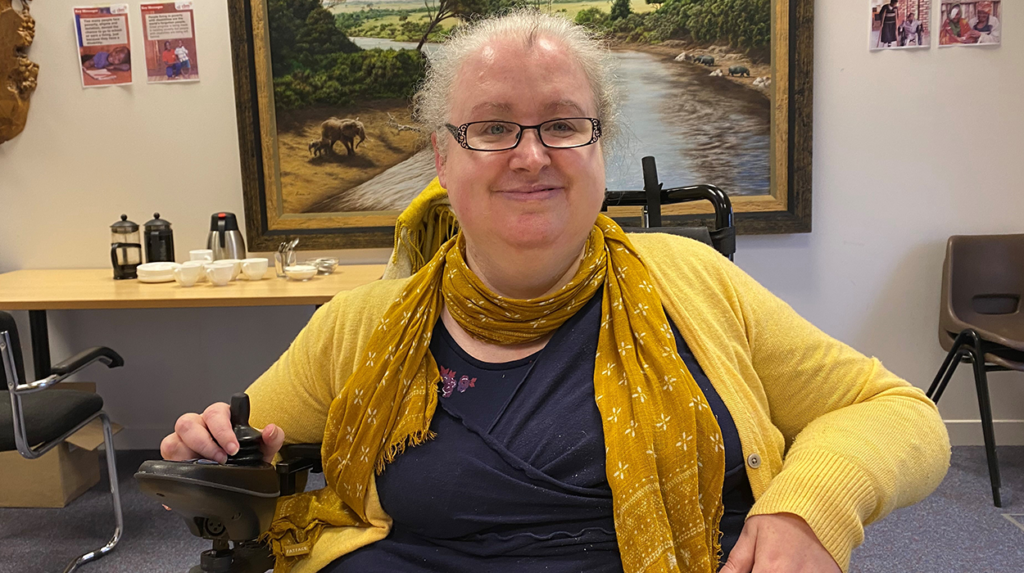
Mary Keogh is Disability Inclusion Director for CBM Global. In this blog, she introduces her role and explains how partnership is central to building an inclusive world.
I’ve worked with CBM since 2008, first in advocacy then as senior technical advisor and also CEO of CBM Ireland. I took up my current role as Director of Disability Inclusive Development (DID) in 2018. I am based in Dublin, Ireland and the team I work with is based all around the world (US, UK and Australia).
My role as DID Director is very varied. It has an internal focus – where I support CBM Global create a culture of inclusion – this could be writing policy briefs or internal guidance, facilitating workshops. I also work externally in advocacy on advancing policy change on disability inclusion and do this usually through alliances and consortiums, for example, the International Disability and Development Consortuim.
Working in partnership with people with disabilities
We have very strong partnership principles as an organisation, it has always been at the heart of how we do our work.
The only way to really have sustainable change on the ground is to partner with people, especially people with disabilities, in the countries and communities we work in. People with disabilities are very often the last to be asked what is needed, whether that is in development or in emergency responses. Our approach looks to change this and ensure our programmes and advocacy work is done jointly with people with disabilities and their representative organisations (DPOs)
Working in partnership from the outset is really critical: engaging with people with disabilities in the community and listening to what change the want to see is the first step for us at country level.
On a global level, we partner with the International Disability Alliance and the World Blind Union. At national level, our country offices in Africa, Asia and Latin America work closely with Disabled People’s Organisations (DPOs) and people with disabilities’ self-help groups. The work we support is to strengthen the capacity of DPOs to hold their government to account to commitments they’ve made to disability inclusion because this creates a demand for inclusion in laws, policies and programmes.
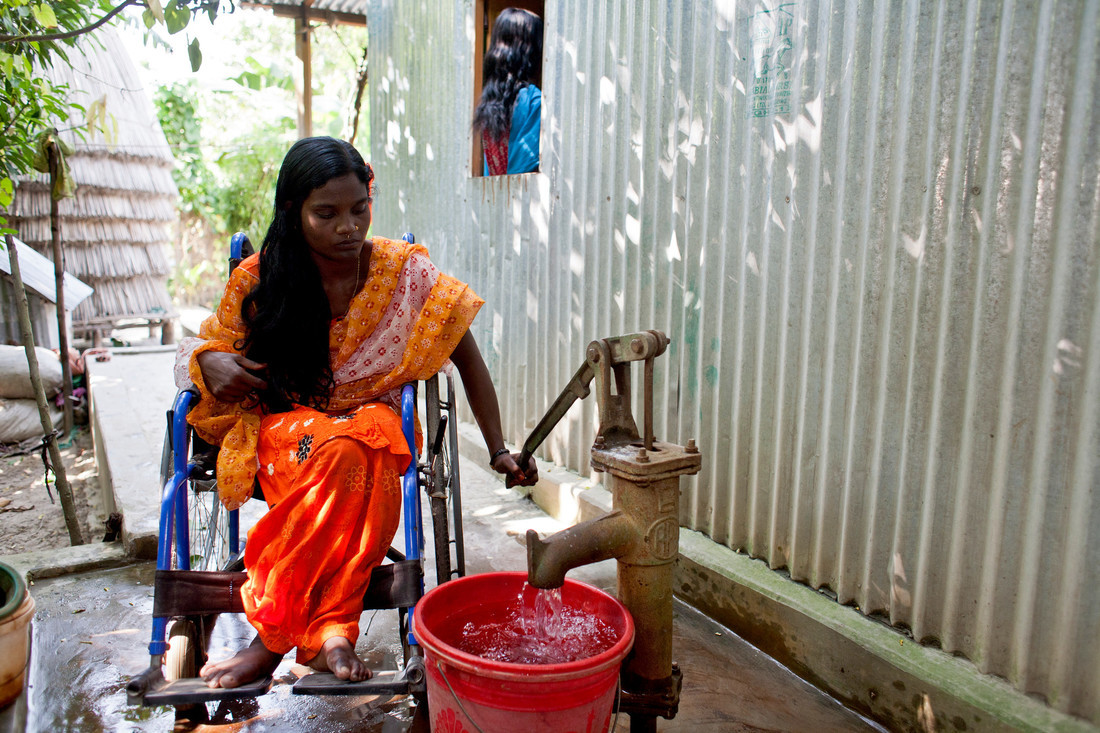
Above; Kazol from Bangladesh at her accessible water pump.
Inclusion requires others to take action
Another form of partnership is our work with mainstream partners to make them more disability inclusive. We partner with the disability movement to influence organisations, institutions and systems to realise the rights of persons with disabilities. We already provide technical advice to different UN agencies and our advisory work is growing at the moment. We’ve been looking how to bring this work up to a global scale and recently launched the CBM Global Inclusion Advisory Group, which is a really exciting development.
We can’t achieve an inclusive world on our own, we need to do this through joint work with others. To truly live our value of partnership, we must do so in a way where we listen and support. Inclusion is about how we work with others to achieve what we want.
Useful links:
CBM Global’s Inclusion Advisory Group (IAG) (CBM Australia – open link in new tab) supports local and international NGOs and governments to put inclusion into practice and allows our reach and impact to benefit more people with disabilities who are marginalised in mainstream development and humanitarian responses.
A new report, Climate Change; This Century’s Defining Issue by Mary Keogh and Maria Paula Acuna Gonzalez (PDF 1.88mb) looks at the impact of climate change from personal, programmes, policy and political perspectives.
Top image: Mary Keogh, Disability Inclusive Director for CBM Global.

